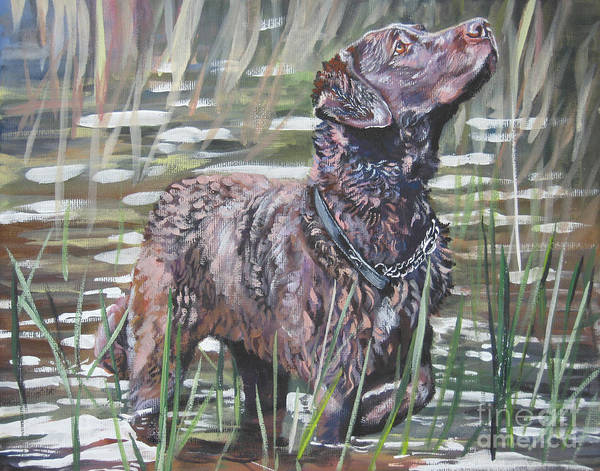
It is perhaps one of the better introductions put into writing. Give it a go:
“I first met him knee-deep in water on my own fen in the wilds of Cambridgeshire. He gave me the most independent stare without the courtesy of a nod and went on with his shooting. I was hurt but interested. He was obviously a foreigner, but I guessed from that gruff air of independence that there was a touch of British blood somewhere. So I asked his companion, one of my partners in the shoot, where the old boy came from and who he was.
“Good lord, he’s not old – he’s a youngster! He’s an American, the only purebred one in the whole country. In fact, he claims the longest and most authentic pedigree in the whole of United States. What’s more, he is the first one of his family ever to come to England. “
“I could have sworn there was English blood in him somewhere,” I answered. What is he then, Red Indian?”
“No, just pure bred American, real native stock evolved and bred on the spot. “Here, Bruce!” he whistled up the pure bred American.
That was my first introduction to the Chesapeake Bay dog, the dog which Americans claim to be the finest water dog in the world just naturally just bred by Providence to make waterfowlers happy.”
A dated and now offensive reference to Native Americans aside, the author, J. Wentworth Day, was descriptive without being hyperbolic. He continues:
“The Chesapeake is not the sort of dog to make friends easily. He is an exclusive, almost an esoteric, person. Like all people of discrimination, he makes few friends and has lots of acquaintances. But, again being a person of discrimination, he sets a wide gulf between friends and acquaintances. I am sure he gets more fun out of life that way.
“He is one of the most individual dogs I have ever known. Each dog, indeed, is individual, and responds to particular and individual treatment. He decides in his own mind who is his master, and that is the only man he will work for. The mere fact that you own a Chesapeake just not by any means imply that you are the Chesapeake’s master or that he will work for you. He is the person who decides that, and his decision depends on you – buy you don’t make the decision. Like all people of real character, there is nothing either showy or stylish about him, but he is faithful to a degree, highly sensible, a magnificent guardian, a companion without equal, the greatest man that ever walked into a child’s nursery… the odd thing about the Chesapeake is that you always think of him quite instinctively as a grand old dog.”
We have observed over the years that the more interesting the person, the more flourish they bring to the “stable” of words they use in describing a situation, person, or, in this case, a breed. J. Wentworth Day was nothing if not interesting. The Brit’s assessment of the Chessie appeared in, The Dog in Sport, a logical title for a book published in the 1930s and penned by a well known sportsman with gobs of experience working with many sporting breeds.
Day also hunted ghosts, and of the forty plus books he wrote, several were about this interest. One recounted his own visionary experience in which he witnessed phantom French and German cavalry re-enacting a skirmish from the early days of WWI. By now, Day was known for his tendency to weave ripping yarns, but he named a fellow witness, Corporal Jock Barr of Glasgow, and from the circumstantial details he provided, it was possible to pinpoint the precise location of the ghostly apparitions.
Day promoted agrarian politics which advocated on behalf of farmers and rural community residents, condemned land speculators, and opposed the use of pesticides. In that regard, he may have been ahead of his time. His book, Farming Adventure, detailed his journey around the farms of East Anglia on horseback, and the experience either solidified his views, or prompted them.
For a time, he supported Benito Mussolini in theory, but was highly suspicious of Adolf Hitler. He became a propaganda adviser to the Egyptian government in 1938, and spent the Second World War as a correspondent in France and as Near East correspondent of the BBC until he was suffered an injury in 1943.
Wentworth Day had minor fame on TV for a brief time (1957 and 1958), but his outmoded views were highly controversial and his broadcast career was short lived. He continued to write up until the time shortly before his death at the age of 83. He left behind a daughter, a widow and a couple of ex-wives, as well as several former fiances.
Interesting people can be a challenge to live with.
Image: Chesapeake Bay Retriever by LA Shepherd
www.facebook.com/L.A.ShepardArt
http://fineartamerica.com/profiles/lee-ann-shepard.html
www.etsy.com/shop/TheDogLover
